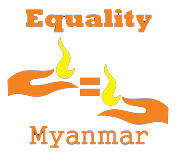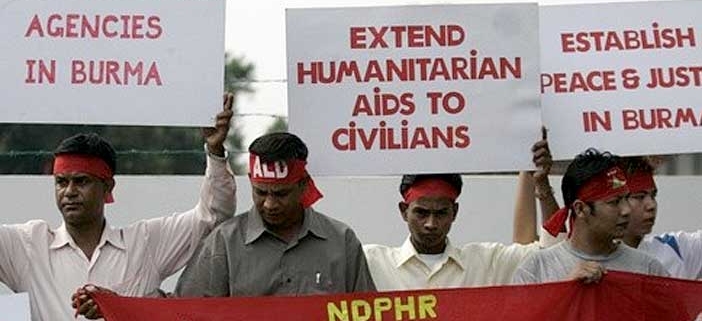TUESDAY, 08 MAY 2012 00:00HANNA HINDSTROM, DVB
Burma’s landmark census planned for 2014 is likely to exclude and further isolate its Rohingya minority group, which has been denied citizenship by the government since 1982.
Although the government has agreed to include all “national races” in the census, the 1.5 million Muslim minority group does not fall under this category and campaigners worry they will be left out.
“It is very likely that the Rohingya will be excluded from the census in 2014,” Tun Khin, President of the Burmese Rohingya Organisation UK told DVB. “Despite signs of political reforms in the past six months, Thein Sein’s government has reaffirmed specific deeply discriminatory policies against [them].”
Considered illegal Bengali immigrants by the government, the Rohingya cannot travel without special permits and are routinely denied the right to education, healthcare and family life. They face jail terms unless they obtain permission to marry and are bound by a rigid two-child policy.
The President’s advisor U Ko Ko Hlaing recently defended the government’s policy to restrict the movements of the Rohingya to certain townships – mainly in northern Arakan state – for “security” reasons.
The director general of the department of population, Myint Kyaing, who is leading the census project in collaboration with the UN Population Fund (UNFPA), has himself previously denied there are any Rohingya in Burma.
“We have no stateless people in Myanmar [Burma] and there are no Rohingya in Myanmar [Burma] as well, because no Bengali people are residing [here],” he said.
UNFPA Representative Mohamed Abdel-Ahad told DVB that the Rohingya had not yet been specifically discussed, but insisted that “the census will be inclusive.”
Up to 400,000 Rohingya have sought refuge from religious and racial persecution in neighbouring Bangladesh, where they often face further discrimination. The Bangladeshi government has only recognised 28,000 refugees, leaving the rest in the shadows of statelessness and social exclusion.
A 2010 report by Physicians for Human Rights concluded that “Bangladeshi authorities have waged an unprecedented campaign of arbitrary arrest, illegal expulsion, and forced internment against Burmese refugees.”
The Rohingya were stripped of their Burmese citizenship in 1982 by former military chief Ne Win on the basis of being “non-nationals”. But Rohingya groups insist they have lived in Burma for generations, citing evidence of political participation dating as far back as 1936.
Reports of racism against Rohingya are widespread in Burmese society. Last year, a BBC report that identified Arakan state as populated by the group caused an outrage across Burma, culminating in threats to boycott the media outlet.
Even democracy icon Aung San Suu Kyi and her National League for Democracy (NLD) has refused to speak out on behalf of the Rohingya. When pressed on the issue in a recent BBC World interview, a senior official for the NLD replied:
“I don’t want to answer because even in our organisation the Rohingya question has not been settled. Even in our leadership some of them think that the Rohingya is a very delicate question.”
Both the US and EU have called for greater rights for the Rohingya, but it is unclear what level or priority they will be afforded in Burma’s reform process. Campaigners say the NLD’s voice is crucial.
“Instead of staying silent, [Suu Kyi] should speak up,” said Tun Khin. “I believe she is currently paying more attention to mainstream politics.”


 Equality Myanmar (EQMM) is a leading nongovernmental organization that organises a wide range of human rights education and advocacy programs, the documentation human rights violations, and provides emergency support for activists, human rights defenders, and their families. We work with a range of local civil society organizations, educators, activists, various local actors, and our programs and activities reach all states and regions in Myanmar.
Equality Myanmar (EQMM) is a leading nongovernmental organization that organises a wide range of human rights education and advocacy programs, the documentation human rights violations, and provides emergency support for activists, human rights defenders, and their families. We work with a range of local civil society organizations, educators, activists, various local actors, and our programs and activities reach all states and regions in Myanmar.